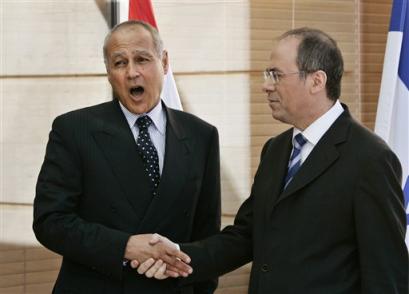Last week, during discussion with a fairly senior Egyptian journalist, I was told that the Egyptian Ministry of Information had just finished a preparing a new “code of ethics” in order to puts limits on what satellite TV stations could broadcast, especially when the topic was political in nature. This idea has come about as political talk shows have proliferated in the last few years, giving a much stronger voice to opposition politicians and movements like the Muslim Brotherhood. Much like the printed press, these shows have particularly focused on government incompetence and the new kinds of stories being broken by bloggers such as the torture videos aired over the last two years. The contents of these new regulations were vague, but were particularly targeted at the Egypt-focused content of foreign satellite stations and the rules of conduct
This move took place at the same time as Saudi Arabia’s sudden decision to ban live talk shows after someone mocked the size of a recent public servant salary increase, which was seen as a criticism of the royal family. Now it appears Arab ministers of information are on their way to finalizing rules that would apply to the entire region just as some countries are restricting the level of audiovisual freedom. Masri al-Youm reports:
Al-Masry Al-Youm has learnt that Egypt’s Information Minister Anas El-Fiki and his Saudi counterpart Iyad Madani have agreed to submit a bill that would amend the regulations of Arab satellite TV channels at the meeting of the Arab Information Ministers in Cairo on February 12 and 13.
According to the bill, which the two ministers intend to issue in the conference closing statement, new rules would be set which all Arab satellite stations should abide by. They would be signed as annex to the contract concluded between the station and the State that grants it the license.
The bill also sets specific penalties for any transgressions, ranging from warning the station to revoking its license indefinitely.
Informed sources told al-Masry al-Youm that the Egyptian Ministry of Information resorted to a committee of experts to set these rules in coordination with its Saudi counterpart.
The sources also pointed out that these rules focused on “political dangers” to impose lower ceilings on political programs and daily talk shows which have lately enraged Egyptian and Saudi rulers.
The sources indicated that this bill comes on the backdrop of the measures recently taken by Egypt and Saudi Arabia to reduce satellite channels’ liberty. For instance, the new ‘Al-Hayat al-Masriya’ channel, which was due to go on air on January 18, has been banned.
According to the sources, the Ministry of Information informed officials at the Egyptian Media Production City (EMPC) that the channel would not be authorized to do its pilot broadcast.
The Ministry also banned a daily program entitled “Sa’a bi Sa’a” [By the Hour] that was due to start on February 3 on El-Sa’a channel.
For its part, Saudi Arabia stopped Al-Ekhbariya live programs after it accused the channel of causing disorder. Saudi Arabia is also aiming at making the attacks from al-Jazeera programs less fierce.
According to the sources, Anas El-Fiki and Iyad Madani have been more and more in contact with their Arab counterparts to secure their support to this bill and have agreed on the necessity to pass it.
El-Fiki postponed the approval of Al-Hayat channel and El-Sa’a’s program after the new regulations had been adopted and the officials at the two stations had signed them.
ln other words the contraction of media freedom already seen lately in Egypt with the arrest/prosecution of print journalists and the apparent patching of relations between Saudi Arabia and Qatar is likely to move forward significantly if these new regulations are implemented. It seems that Arab governments, who rarely manage to coordinate anything, are at least in agreement that satellite television channels need to be controlled (and since these channels are occasionally used as bargaining chips by the governments who host them, it means a pause in the intra-regional PR campaigns Arab states often wage against each other.) I heard recently that telecom magnate Naguib Sawiris, who is about to launch his own satellite news channel, has decided to base it in Jordan rather than Egypt to get away from government pressure. But with such a deal, one wonders whether independent-minded channels might not be better off being based outside the region altogether. Is this a return of the London model of Arab press?


